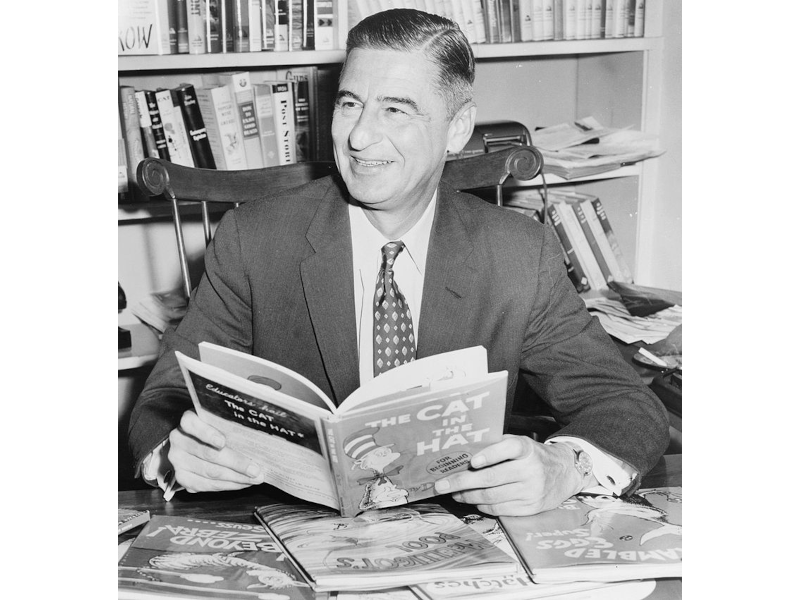Theodor Seuss Geisel, also known as Dr. Seuss, published his first children’s book, And to Think I Saw It on Mulberry Street, in 1937. Since then, he has sold over 650 million children’s books in more than a dozen languages and in more than 100 countries.
In conjunction with Read Across America Day, Dr. Seuss Enterprises announced it no longer publishes the book, along with five other Seuss stories. The decision to cease publication and licensing of the six books, that portrayed people “in ways that are hurtful and wrong,” was made after discussions with a panel of experts, according to a March 2 post on the publisher’s website.
Seuss wrote the six books between the years of 1937 and the late 1970s.
The author’s work became the center of controversy after a 2019 study from the Conscious Kid’s Library and the University of California pointed to a lack of diversity among the books’ characters.
[adrotate banner=”29″]
Augusta University Professor Simon Grant’s interests include literature from the 1950s and 1960s. He does not have an opinion about the publisher’s business decision to stop selling the six books. As a literary scholar, he looks at the books from a different perspective.
“As a professor, I would contextualize it within the time frame,” he said. “I would recognize the complexity of the author.”
Dr. Seuss died in 1991 leaving behind a contradictory legacy. Barack Obama praised the author’s books during his presidency. Southern Poverty Law Center’s Teaching Tolerance uses the Seuss book, The Sneetches, in their anti-racist curriculum for children in Kindergarten through fifth grade, according to the 2019 study.
And to Think I Saw It on Mulberry Street depicts a white man whipping a man of color.
If I Ran the Zoo shows a white boy standing on the heads of three Asian men.
Literary studies frequently include authors who make a great contribution to art while presenting insensitive imagery or characters in their work, Grant said. Often, insensitive imagery is more accepted in the time that it was created but does not work in a different time frame.
“We still recognize their literary contributions but also recognize that as complex individuals, they will have dark sides to their personality,” he said.
Grant points to Alice’s Adventures in Wonderland, commonly known as Alice in Wonderland, written in 1865 by English author Lewis Carroll as another important text in the world of children’s literature. However, literary scholars argue whether Lewis Carroll’s relationship with the real Alice can be interpreted as pedophilia, Grant said.
[adrotate banner=”23″]
Scholars still look at Alice in Wonderland as a great work of literature, but the controversy over whether Lewis Carroll was a child predator comes up, and people debate it, he said.
Looking at a book as a parent is very different than looking at it from a literary or historical perspective.
“Part of what makes Seuss a complex writer is that he does have books that argue against prejudice,” Grant said.” In The Sneetches, he takes the position of equality of all people.”
Authors who are complex and whose personality traits don’t seem to reconcile makes literary studies particularly fascinating, according to Grant.
“It’s not that they are perfect people. No artist is a perfect person,” he said. “We are looking at the very fascinating, complex imperfect people and recognizing all these contradictive sides of a person.”
When Grant runs across insensitive imagery as a parent, he takes the opportunity to explain why it is inappropriate.
Little Castle Childcare Owner Carlos Gil said children under his care will not be viewing any of the six Seuss books. He said the Augusta-based daycare is very careful to exclude all books that present any type of racial prejudice or talk about theft or violence.
“We take it out, ” he said. “We don’t, we won’t.”
[adrotate banner=”19″]
Columbia County School District is not as adamant about making sure children do not read the controversial books.
“No Dr. Seuss books have been removed from any of our 31 media centers,” Communications Director Abbigail Remkus said in an email March 5. “What books those are, we would have to check.”
Although Dr. Seuss Enterprises posted the announcement in correlation with the author’s birthday, the publisher made the decision last year. Discontinuing the sales of the books is part of a broader plan to “ensure the enterprises’s catalog represents and supports all communities and families,” according to the announcement.
After the publisher’s announcement, other Dr. Seuss books rose to the top of both Amazon’s and Barnes & Nobles’ books lists. And to Think I Saw It on Mulberry Street could be found on ebay for more than $100.
If I Ran the Zoo, McElligot’s Pool, On Beyond Zebra, Scrambled Eggs Super and The Cat’s Quizzer are included on the list of Seuss books no longer for sale.
The 2019 study, The Cat is Out of the Bag: Orientalism, Anti-Blackness, and White Supremacy in Dr. Seuss’s Children’s Books (stkate.edu), can be found by clicking on the link.
Shellie Smitley is a staff writer for The Augusta Press. Reach her at shellie@theaugustapress.com
[adrotate banner=”44″]













